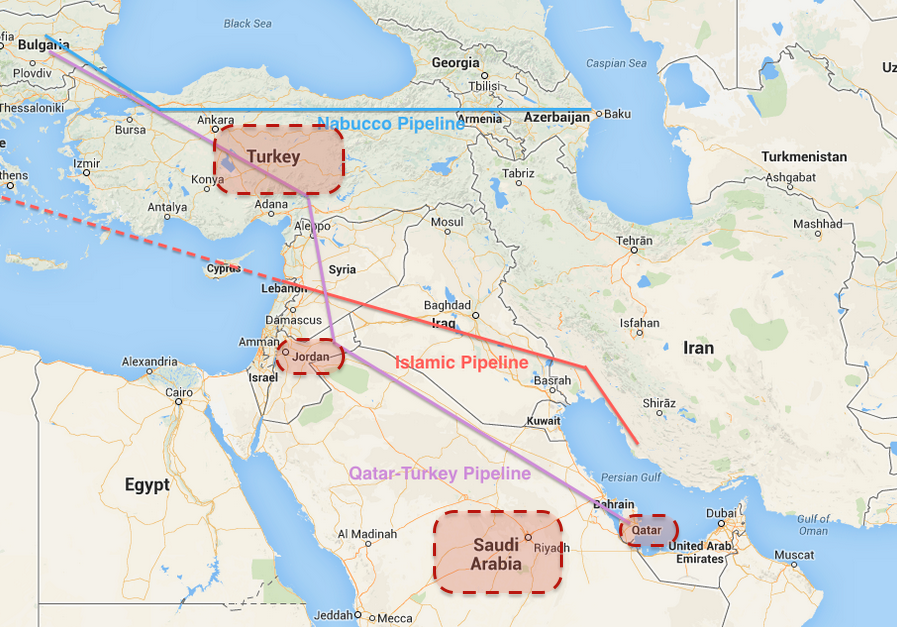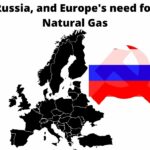I think there are military coup’s happen which do not generate worldwide alarm. On Friday, parts of the Turkish military announced they’d taken over in order to reestablish constitutional order etc. But within a few hours President Recep Tayyip Erdoğan reestablished control and was cracking down on the dissidents — and perhaps the brutality of the response demonstrates why that faction felt the need to reestablish constitutional order. Additionally, plenty of heads of states called for respect of the duly elected government of Turkey, in other words stating supporting Erdoğan and his government.
In other instances various heads of state have called for “Regime Change” demonstrating that they don’t necessarily respect the status of duly elected governments. They instead respect what’s politically expedient in the moment. Therefore, Erdoğan’s government with Turkey playing the role it currently plays is extremely important to other countries, to the European Union, to NATO, etc. That importance has to do with natural gas supplies to Russia, and in general the geopolitical tussle between the EU/US/NATO and Russia.
To discuss Turkey’s importance – let’s breeze over a few obvious things, and then return to the story about Europe’s non-Russian natural gas supply that I’ve covered in the past.
The map above demonstrates some obvious things. Turkey is geographically situated at the cross-roads between Europe, the Middle East, and Central Asia. Turkey faces Russia across the Black Sea and indeed the current tension between Russia and everyone else means Turkey is needed as a critical player. Turkey controls the entry-way to the Black Sea, meaning Russia’s Black Sea Navy can be bottled up by Turkey.
Because Turkey borders Syria, it is a major waypoint for refugees fleeing that war (as is Jordan). It is also an operations base for (clandestine?) military actions in that war. Finally, Turkey is a participant in that war. While Turkey’s actions in Syria are spun as fighting against terrorists, Turkey’s actions have been primarily to fight against Kurds. Where Turkey’s government see’s the Kurds as a big threat to Turkey, labeling them as terrorists, the West wants to use the Kurdish fighting forces to fight against other terrorist groups.
But – let’s get to the real issue – Turkey as the conduit for natural gas from places not controlled by Russia.

The first aspect to this is natural gas that would flow from fields in Azerbaijian, through Georgia, through Turkey, and into Europe. The details in the above map are no longer accurate because some of those projects were scuttled. So let’s work with the general idea.
As I’ve reported earlier, the United States government see’s Europe’s energy security as a national interest. It’s perceived the big threat to Europe is coming under domination of Russia — because Europe doesn’t have its own natural gas supplies, while Russia has a huge supply. Russia has a long-standing policy of leveraging anything to gain advantages, and to crushingly dominate anyone they can. Lots of high level U.S. government studies document the various routes to get non-Russian natural gas to Europe.
Central Asia figures strongly in this, with Azerbaijian being a leading source. Getting oil and natural gas from there to Europe means threading pipelines through a needle. The map shows land bridge of countries that are somewhat friendly to Europe.
As you can see by the map, Turkey is geographically the main component. Georgia is another critical piece — and sure enough there is talk of bringing Georgia into NATO, and there is turmoil in Georgia.
In the last news I saw on that, the people of Georgia were anxious over how long it was taking to achieve NATO membership. The current status is that NATO has set up a training center, and that maybe sometime in the future will integrate Georgia with NATO. But, the people of Georgia are looking at Russia’s recent moves, are understandably worried, and might be thinking that it’s better to rejoin with Russia rather than become a target of Russia’s aggression.
Then there is Russia’s incursion into Georgia, the “break-away province” of South Ossetia. That area just-so-happens to reach to within a couple miles of the pipelines mentioned above. Is that incursion by Russia meant to interdict the pipeline? Probably.
You’ll also see in that map a grey spot that is Armenia. There’s a sad painful history between the Armenians and Turks, including a genocide occurring about 100 years ago. Armenia and Russia are on friendly terms. In April, there was an uprising by ethnic Armenians in Azerbaijian with one province hoping to be switched from Azerbaijian to Armenia. Theoretically that might have been honestly people wishing to be reunited with their own kind. But, for an Azerbaijiani province to break away would have destabilized that country, and threatened the pipeline plan. That would have served Russia’s interest by interfering with plans for non-Russian natural gas supply to Europe.

Dueling pipeline proposals
Here’s another source of natural gas that is thought to be behind the Syria war.
A large natural gas field was recently discovered in the Persian Gulf between Qatar and Iran, with each owning about half the field. Both Qatar and Iran wish to bring that natural gas to Europe. But because they’re on opposite sides of Middle East politics, if only because Iran is Shia and Qatar is Sunni, they’re not about to work together. There’s also that long-standing problem of the sanctions against Iran that would throw difficulties in the way of Iran collaborating with anybody else.
As the map shows, Iran sought a pipeline route that would go through Iraq then Syria, where it would be shipped to Europe. That route would avoid shipment through pipelines in Turkey.
The other route is from Qatar, through Saudi Arabia, Jordan, Syria, into Turkey, to the pipelines that would go to Europe. The US/EU/NATO was in support of this route.
That presented a conflict in that Syria couldn’t serve both sides, it would have to choose one side or another. And it’s thought the Syrian war is because Syria chose to side with Iran.
Since we’re focusing on Turkey – their role in the Syria conflict has been crucial. The long border has been a critical asset, for example. With that Russian jet which was shot down a few months ago, that occurred because of a momentary incursion into Turkish territory (supposedly).
- Is there enough Grid Capacity for Hydrogen Fuel Cell or Battery Electric cars? - April 23, 2023
- Is Tesla finagling to grab federal NEVI dollars for Supercharger network? - November 15, 2022
- Tesla announces the North American Charging Standard charging connector - November 11, 2022
- Lightning Motorcycles adopts Silicon battery, 5 minute charge time gives 135 miles range - November 9, 2022
- Tesla Autopilot under US Dept of Transportation scrutiny - June 13, 2022
- Spectacular CNG bus fire misrepresented as EV bus fire - April 21, 2022
- Moldova, Ukraine, Georgia, Russia, and the European Energy Crisis - December 21, 2021
- Li-Bridge leading the USA across lithium battery chasm - October 29, 2021
- USA increasing domestic lithium battery research and manufacturing - October 28, 2021
- Electrify America building USA/Canada-wide EV charging network - October 27, 2021



















David,
Very interesting analysis. But, to complete the circle, we’d need to opine as to how a military secular takeover might have effected Turkey’s pipelines. I think the answer is, not much. If anything, a secular military takeover would have brought greater stability as it would have reduced the possibility of Erdogan’s Islamist rule making a political/religious decision regarding the flow of natural gas.
But, note, too, the relatively recent development of the Leviathan natural gas field off of Israel’s coast that is likely also to transit to Europe, and the issue is whether is will do so through Greece or Turkey. Turkey’s decision last week to re-establish diplomatic ties with Israel may have been part of Turkey’s effort to obtain that pipeline. So, even Erdogan is quite practical when it comes to energy.
As to Russia, neither Erdogan or the Turkish military is cozy with it, or likely to want to help it, given that Russia is helping Shiite Iran (Turkey is Sunni).
Agreed on Leviathan – though, I’d forgotten about that while writing the piece. Thank you for reminding us about that.